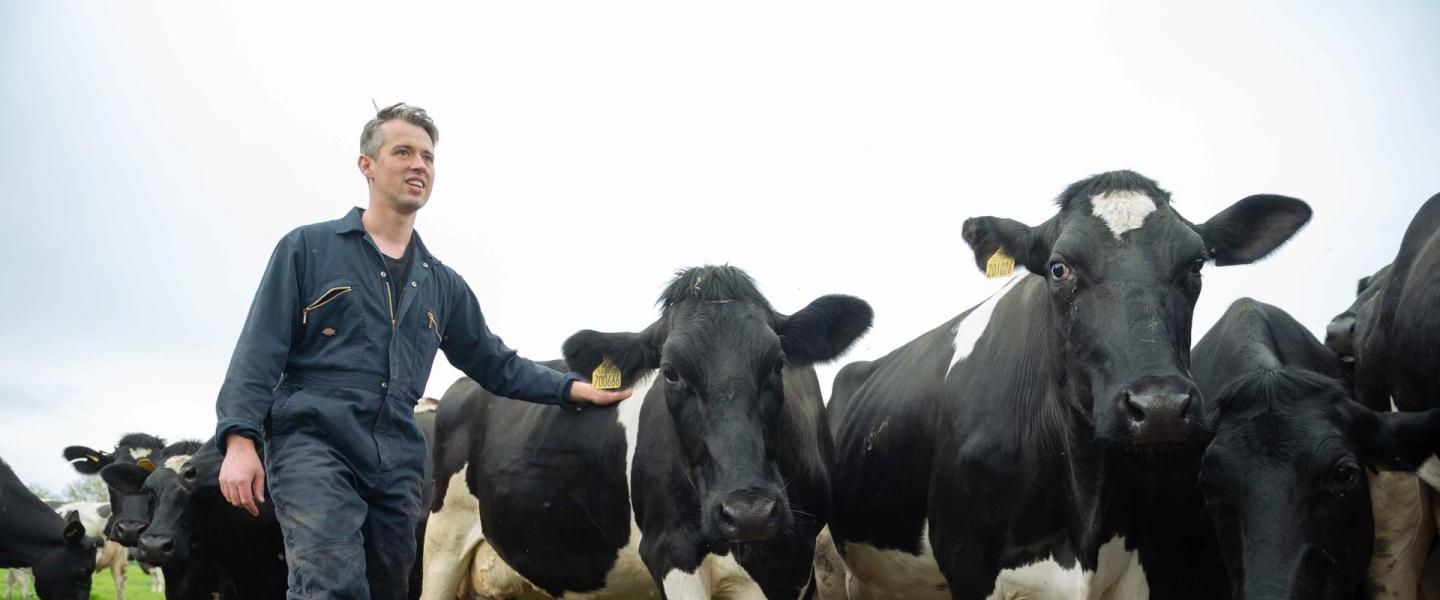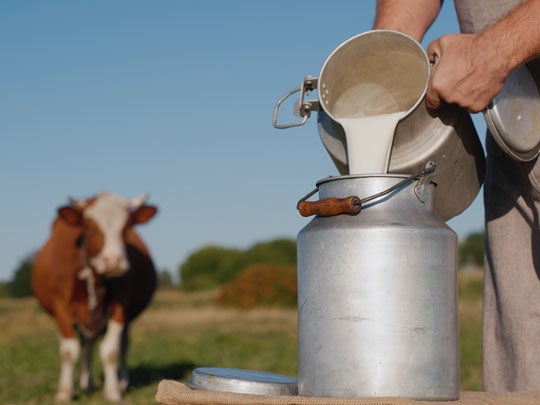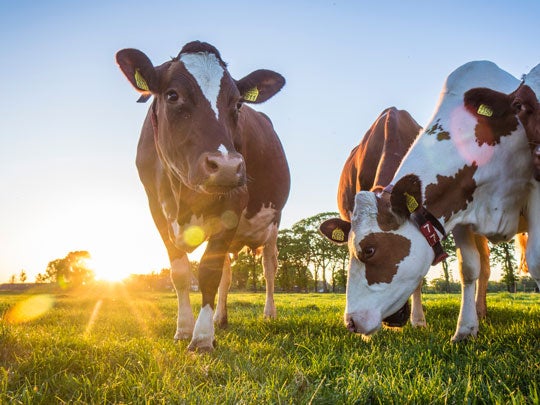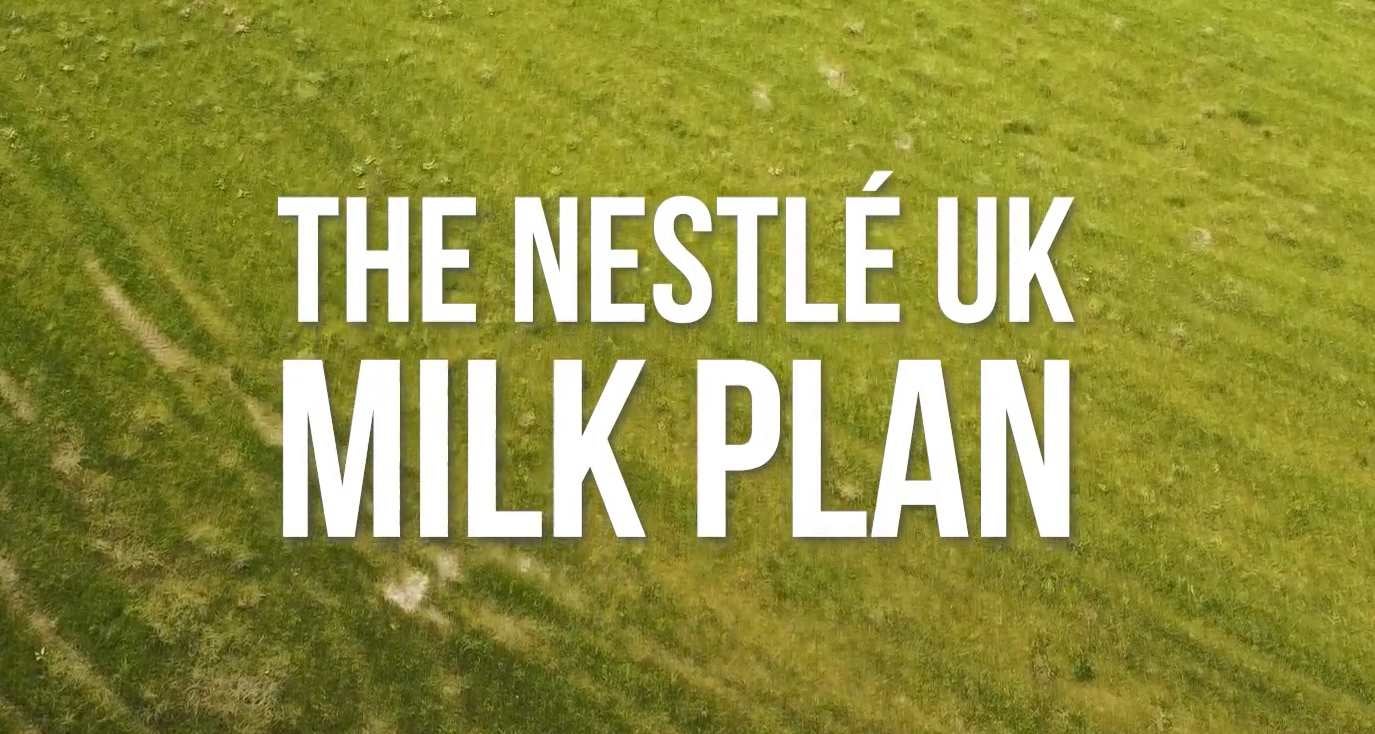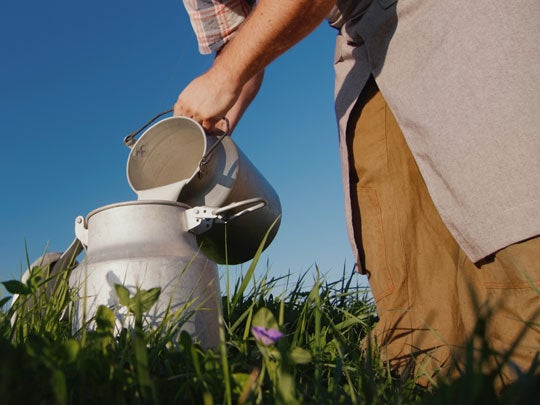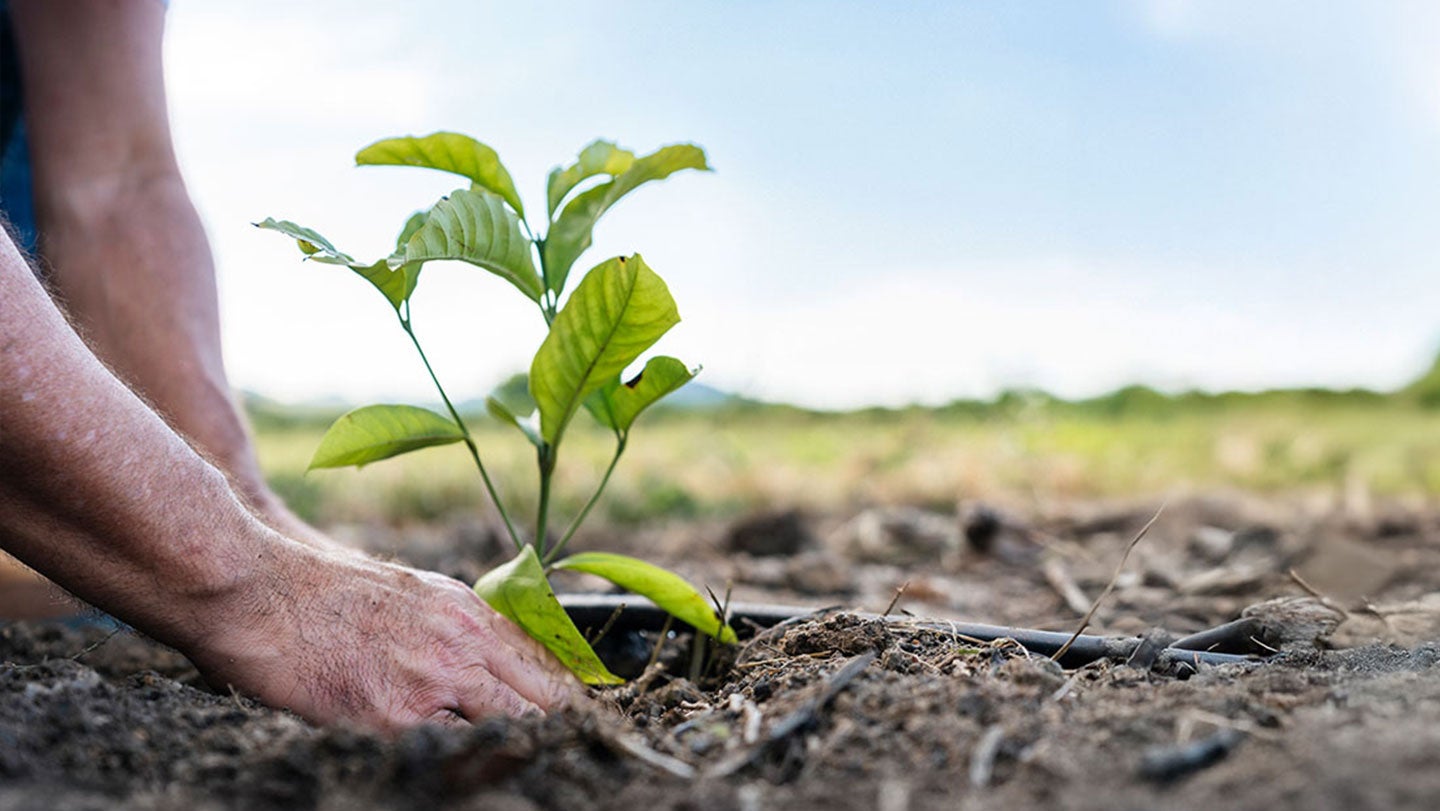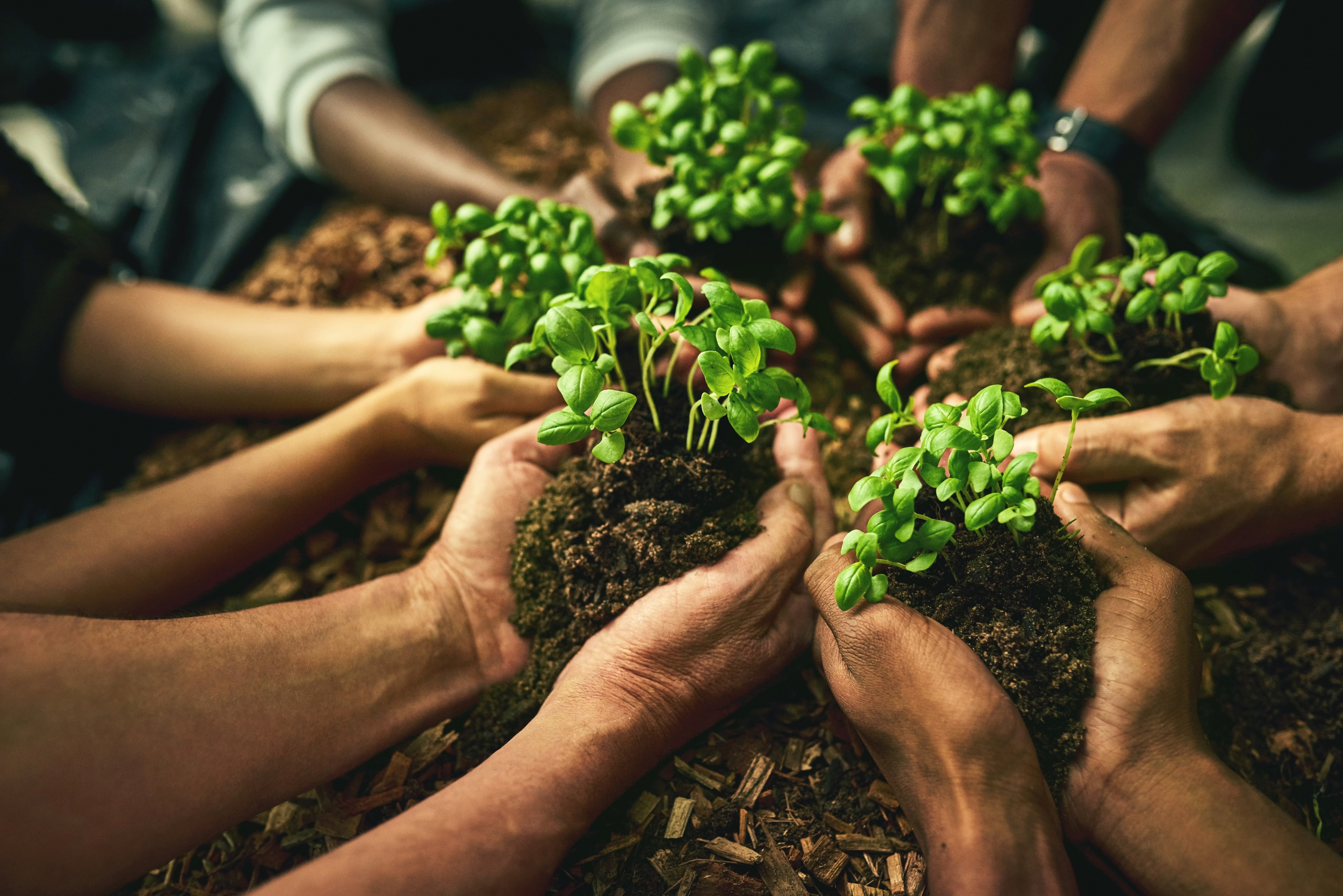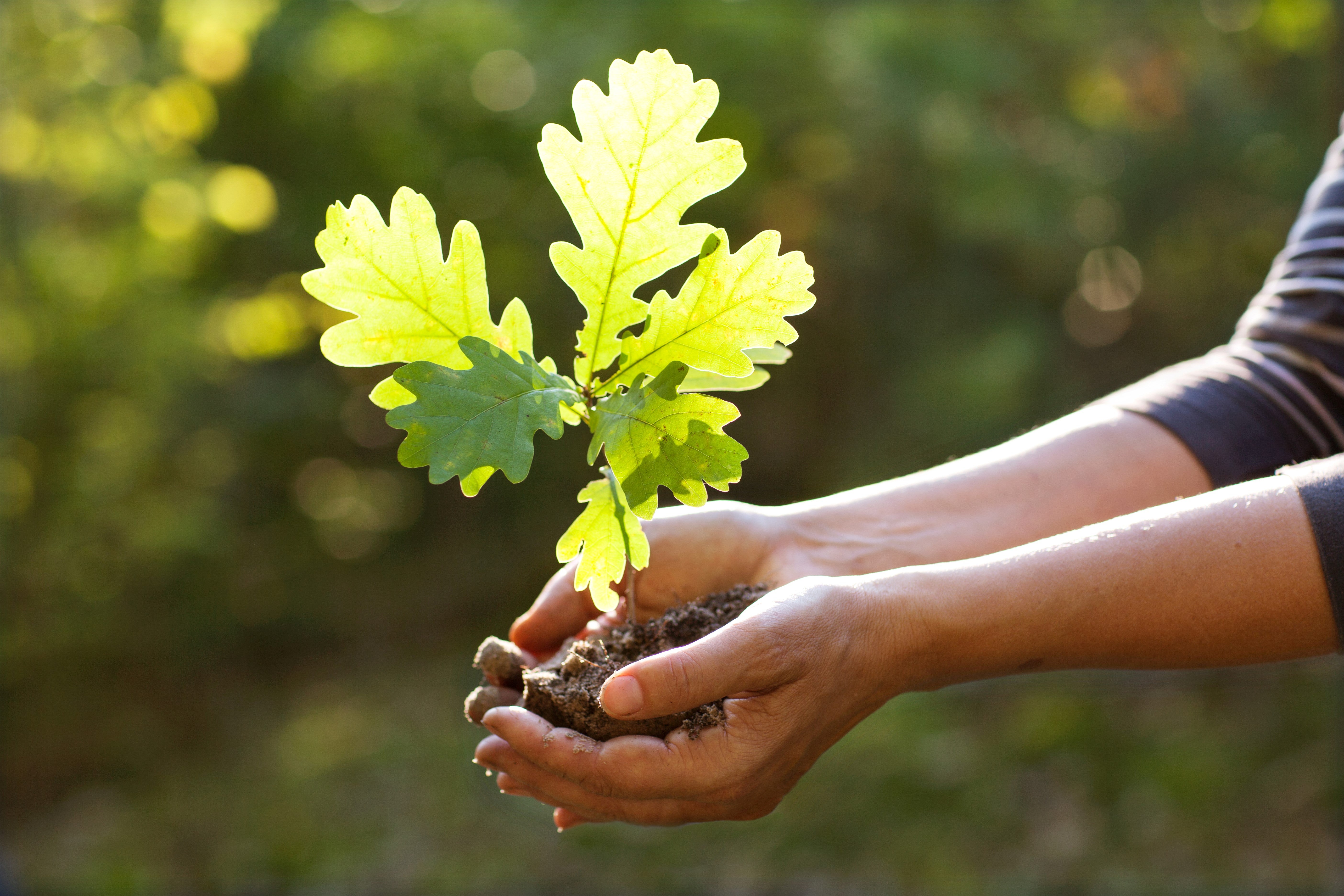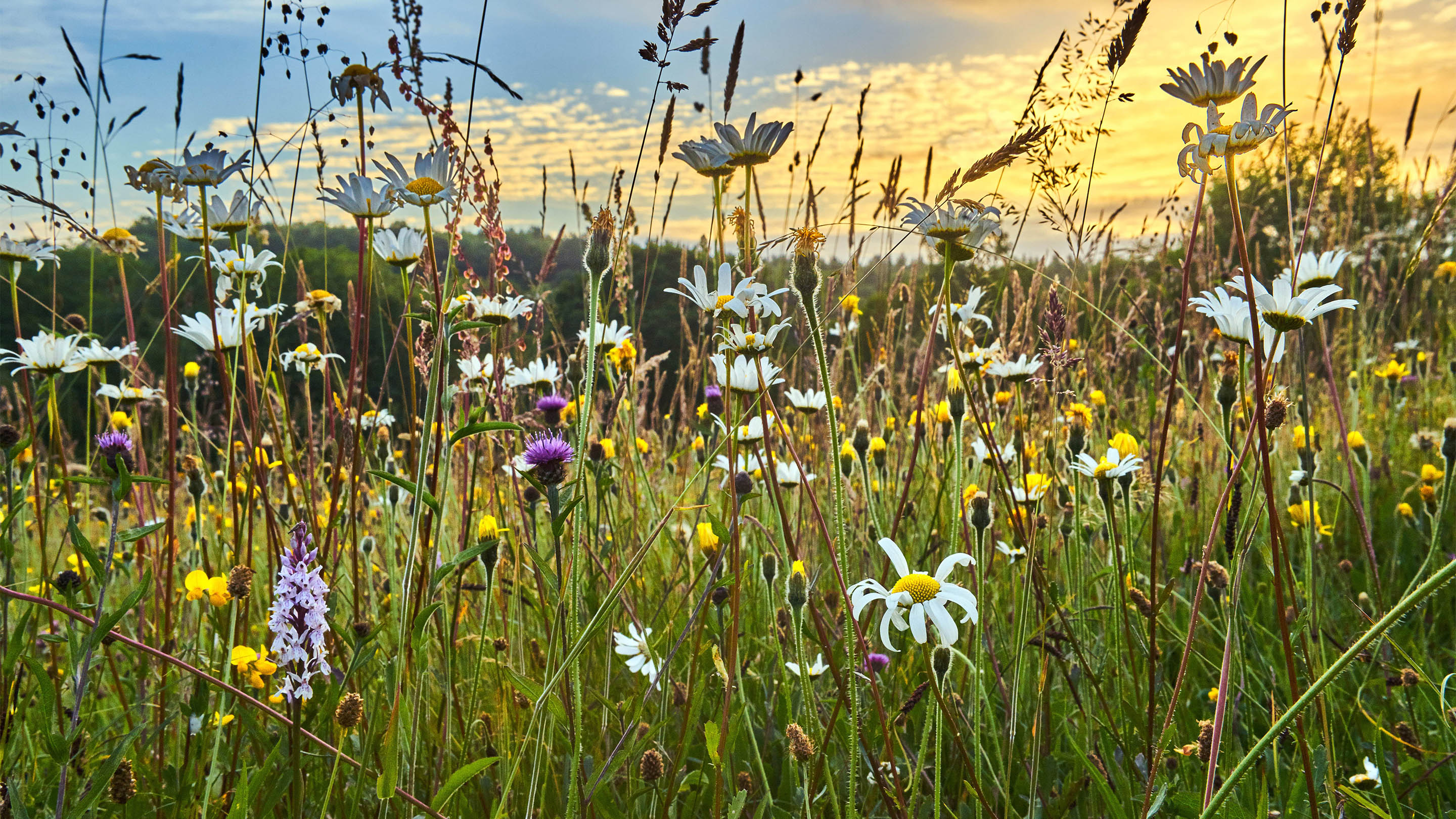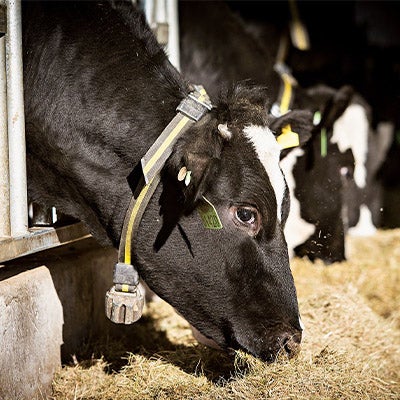Responsible farming, sustainably sourced milk
The UK Government is transitioning from Common Agricultural Policy payments to the Environmental Land Management scheme*. Under this scheme, farmers will be rewarded for environmentally beneficial work, including tree and hedge planting, river management to prevent flooding, and the creation and restoration of wildlife habitats.
These are measures that farmers and companies involved in the dairy sector can all take to remove carbon from the atmosphere and sequester it in the ground. British farmers are leading in protecting their local environment and making their industry more resilient to climate change. And we are supporting them in doing so.
Promoting responsible dairy practices
The Nestlé Milk Plan aims to enhance sustainability, support farmers, and contribute to environmental stewardship by promoting responsible dairy practices. Through initiatives like efficient resource management, waste reduction, and collaboration with farmers, Nestlé UK & Ireland strives to create a positive impact on both the dairy industry and the environment.
We have a cunning plan
The Nestlé Milk Plan includes four practices that are compulsory for farmers, in order to receive the sustainability bonus payment for their milk. The Plan also includes five optional elements that we encourage First Milk farmers to participate in.
| Compulsory | Optional |
|---|---|
|
|
First Milk Partnership
Since 2003, we have worked with 80 farmers who provide high-quality fresh milk for the manufacture of brands such as KitKat® and NESCAFÉ® Frothy Coffee.
Our goal, and that of First Milk, is to lessen environmental impact by improving the sustainability and efficiency of the supply chain. Each farmer receives a ’sustainability bonus’ for taking practical measures that protect and enhance natural assets on their land.
"We are proud to be members of the First Milk supply group to Nestlé. Working with Nestlé has helped to enhance our strong values and beliefs that we are the custodians of the land for the next generation. Through their sustainability programme, it has allowed our farm to be managed with both an environmental and business perspective in mind. With the guidance and support of Nestlé and First Milk we are looking forward to playing our part in reducing greenhouse gas emissions associated with our business and we are enthusiastic about the potential for carbon storage into the soils beneath our grasslands."
Margaret Smith
Cotehill Farm
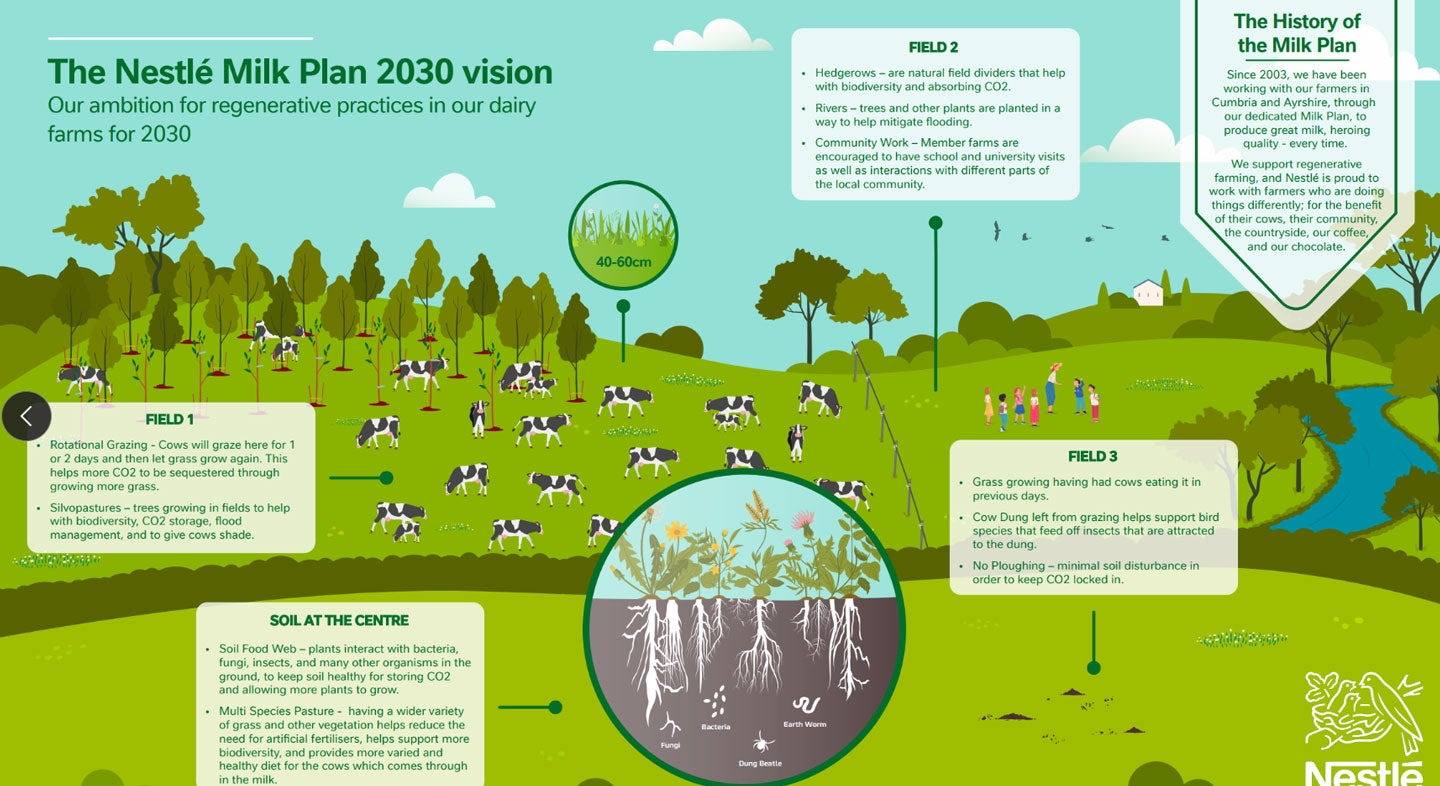
It’s there in black and white
As specified in our Nestlé Commitment on Farm Animal Welfare and in our Nestlé Responsible Sourcing Standard, we support the World Organisation for Animal Health (OIEI) in promoting implementation of the ‘Five Freedoms’ for animals in the global food supply chain:
- Freedom from hunger, thirst and malnutrition
- Freedom from fear and distress
- Freedom from physical and thermal discomfort
- Freedom from pain, injury and disease
- Freedom to express normal patterns of behaviour
Sustainability Insights & Reports
* How government will pay for land-based environment and climate goods and services, Environmental land management in 2024: details of actions and payments
